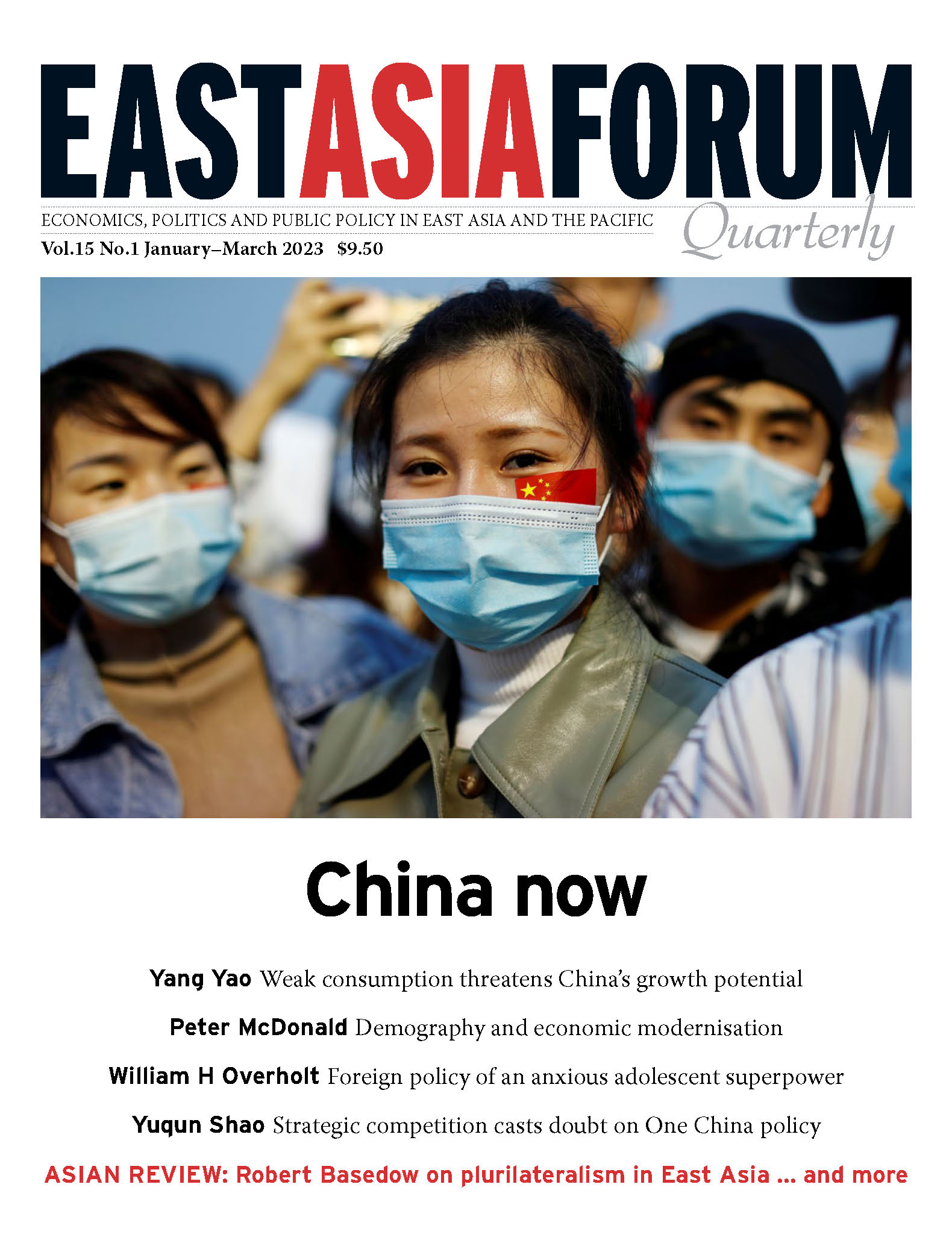
China now
Volume 15, No 1: January – March, 2023
While many rejoice in something like ‘normality’ after the years of disruption caused by the global COVID-19 pandemic, the world will not resume its former shape. Nowhere is this more evident than in China. After the disastrous economic performance of 2022, recalibration of China’s policies was essential, including through a retreat from zero-COVID and relaxation of restrictions on the free market under the banner of ‘Chinese-style modernisation’. China’s greatest post-pandemic challenge, however, will be the terms of its engagement with the outside world. Its claims to both developing-nation status and global leadership define China, some say, as an ‘anxious adolescent superpower’. This issue of East Asia Forum Quarterly canvasses a range of shifts in Chinese society and daily life as well as policy direction: describing women’s leading role in the calls for social change; explaining how China’s demographic crunch is unlikely to affect its economic modernisation over the coming two decades; examining the difficulties faced by rural migrants and in investing in the education of the rural young; and detailing the public response to the poorly understood social credit system.
Download
While many rejoice in something like ‘normality’ after the years of disruption caused by the global COVID-19 pandemic, the world will not resume its former shape. Nowhere is this more evident than in China. After the disastrous economic performance of 2022, recalibration of China’s policies was essential, including through a retreat from zero-COVID and relaxation of restrictions on the free market under the banner of ‘Chinese-style modernisation’. China’s greatest post-pandemic challenge, however, will be the terms of its engagement with the outside world. Its claims to both developing-nation status and global leadership define China, some say, as an ‘anxious adolescent superpower’. This issue of East Asia Forum Quarterly canvasses a range of shifts in Chinese society and daily life as well as policy direction: describing women’s leading role in the calls for social change; explaining how China’s demographic crunch is unlikely to affect its economic modernisation over the coming two decades; examining the difficulties faced by rural migrants and in investing in the education of the rural young; and detailing the public response to the poorly understood social credit system.
